wikiHow is a “wiki,” similar to Wikipedia, which means that many of our articles are co-written by multiple authors. To create this article, 17 people, some anonymous, worked to edit and improve it over time.
There are 7 references cited in this article, which can be found at the bottom of the page.
This article has been viewed 49,875 times.
Learn more...
Telling your partner that you have genital herpes is a hard conversation to have. But it’s important to talk about this STI to practice safe sex and maintain the trust in your relationship. Genital herpes is a virus that is caused by the herpes simplex virus-2 (HSV-2) or the herpes simplex virus-1 (HSV-1), the virus responsible for cold sores.[1] But with the right precautions, it’s possible to manage your herpes and still be intimate with your partner.
Steps
Preparing for the Discussion
-
1Learn as much as you can about genital herpes. It’s important to get educated, if you aren’t already, about the facts of genital herpes. This will help you prepare to answer any questions your partner may have about herpes as well as any questions you may have about the virus.
- Genital herpes is a common infection that is usually transmitted through sexual contact, or direct contact with an infected blister or sore. It can also be caused by HSV-1, the virus that causes cold sores on your lips and face, through oral or genital contact.
- The virus can be transmitted when no symptoms are present on the person you had sexual contact with, and often goes undetected and undiagnosed. In fact, about 80% of the US population already has HSV-1 and got it sometime during their childhood from being kissed by a parent, friend, or relative.
- Genital herpes is very treatable, and is not life-threatening. Anyone who is sexually active is at risk of catching genital herpes, regardless of their gender, race, or social class.[2]
- HSV-2 infection is usually passed on during vaginal or anal sex. HSV-1 is usually transmitted by oral sex (mouth to genital contact).
-
2Find out your treatment options. This is also important information to have for your peace of mind and for your partner’s peace of mind. Most herpes cases are treated with antiviral drugs. Drug therapy is not a cure, but it can make living with herpes easier.[3]
- Initial treatment: If you have symptoms such as sores and swelling when you’re first diagnosed with herpes, your doctor will give you a brief course (7 to 10 days) of antiviral therapy to relieve the symptoms or prevent them from getting worse.
- Intermittent treatment: Your doctor may prescribe an antiviral drug for you to keep on hand in case you have another flare-up. You can take the pills for two to five days as soon as you notice sores or other symptoms of an outbreak. The sores will heal and disappear on their own, but taking the drugs will speed up the process.
- Suppressive treatment: If you have outbreaks often, you can ask your doctor for an antiviral drug you can take every day. Anyone who has more than six outbreaks a year should use suppressive therapy, which can reduce the number of outbreaks by 70% to 80%. Many people who take antiviral drugs every day have no outbreaks.
Advertisement -
3Be aware of the facts around spreading herpes to others. While genital herpes is a sexually transmitted disease, sleeping with someone who has herpes does not mean you will are going to automatically get herpes. Most people who have herpes are shedding the disease only a small percent of the time.
- In fact there are many sexually active couples where one partner has herpes and one partner does not have the disease. Being aware of having the virus and letting any sexual partners know about your diagnosis is a big step to preventing the spread of virus to others.
Telling Your Partner
-
1Choose a quiet, private space for the conversation. Invite your partner over for dinner at your place or go for a long walk in a park. You are going to have an intimate and personal conversation with your partner, so pick an environment where you will both feel safe and comfortable enough to have a serious talk.[4]
-
2Talk to your partner before you have sex. Avoid telling your partner right before you are both about to get into bed or be intimate with each other. If you have been dating your partner for awhile, and are at the point where you are both thinking about being intimate, its important to tell your partner about the herpes first. Not only is this a way to practice safe sex, it will also keep your relationship open and honest.[5]
- Even if you are in a casual relationship, your partner deserves to know the facts before you have sex. If you aren’t comfortable enough to tell your partner about your STI, you likely aren’t ready to have sex with them.
- If you have already been intimate with your partner, avoid having sex again until you tell him that you have herpes. It can be very scary to tell your partner about having herpes. The stigma of herpes being disgusting or gross often freaks out both the person who has herpes and the person on the receiving end of the conversation. But herpes can also act as a relationship tester. If your partner is not willing to try to work with you and find ways to deal with your diagnosis, he may not be someone you want to be with, for years down the road or for one night.
-
3Begin with a good conversation starter. Go for a non-threatening way to start the conversation, such as:
- “I really enjoy being with you, and I’m really happy we’re becoming more intimate. I have something to tell you. Can we talk right now?”
- “When two people get along as well as we do, I think we owe it to each other to be honest. So I’d like to talk to you about a condition I have.”
- “I feel like I can trust you and be honest with you. I'd like to talk to you about something.”
-
4Avoid using negative language and the term “disease”. Keep the conversation simple and positive.
- For example: “I found out two years ago that I have herpes. Luckily, it’s treatable and manageable. Can we talk about what this means for us?”[6]
- Use “sexually transmitted infection” or STI, instead of “sexually transmitted disease” or STD. Though they mean the same thing, “disease” sounds like you are consistently having symptoms or outbreaks. But “infection” sounds like something that can be managed.
-
5Stay calm and stick to the facts. Remember that your partner will be looking to you to lead the conversation. Rather than appear ashamed or traumatized by your diagnosis, stay calm and provide the facts about herpes.[7]
- Assure your partner that herpes is a very common virus that most adults in the US already have in their system. For most people who have genital herpes, symptoms don’t show up, are infrequent, or mistaken for something else. About 80-90% of people who have herpes don’t even know they have it. So you are just someone who happens to know you have herpes.
-
6Explain your current treatment, if any, and how you actively practice safe sex. Tell your partner about any medication you take to manage the symptoms and recurrence of herpes.[8]
- Talk about safe sex practices you and your partner can do to keep the disease in check. Always using a condom when having sex. The risk of herpes is reduced by 50% if you use condoms. You should also avoid sexual intercourse when you have a cold sore to prevent the spread of the virus.
- Explain to your partner that the symptoms of genital herpes, such as sores and irritation, may reappear from time to time. This is because once you get the herpes virus, it remains in your body. Most of the time, it remains inactive. Each individual is different, some people never have a recurrence and some many have recurrences several times a year.[9]
- Certain events or situations can trigger recurrences. So let your partner know if there are certain triggers for you, such as stress at work or home, fatigue, insomnia, and menstruation (if you are a woman).
-
7Answer any questions about herpes your partner may have. Remain open to any questions your partner may have. If asked, go into detail about your treatment and your current approach to safe sex.[10]
- You can also tell your partner to research herpes on their own. It may help them to process the information if they do some of their own research online to better understand the virus.
-
8Give your partner time to process the information. No matter how your partner reacts, negatively, or positively, try to be flexible and open. Remember that it likely took you time to adjust to your diagnosis. So give your partner some space to process the conversation.[11]
- Keep in mind some partners may react negatively no matter what you say or how you say it. Their reaction is not a reflection on you and you are not responsible for their reaction. If your partner is not able to accept your diagnosis, try to be accepting of their reaction and take it as a sign that maybe they aren’t the person for you.
- The majority of partners react well and appreciate your honesty. Many couples can be functional and sexually active, despite a herpes diagnosis.
-
9Take precautions before you have sex with your partner. If you both agree to certain precautions, the chances of spreading herpes to your partner are very small. Having genital herpes does not mean you need to abstain from having sex.[12]
- Always use a condom when you have sex. Most couples choose to avoid genital skin to skin contact during an active episode of herpes, as this is when the chances of spreading the virus are higher.
- If you have open sores on your buttocks, thighs or mouth, these can be just as contagious as ones on your genital area. You and your partner should avoid direct contact with any sores on your bodies during sex.
- Avoid oral sex if you or your partner have a cold sore anywhere on your body.
- You cannot catch genital herpes by sharing cups, towels or bathwater, or from toilet seats. Even during a herpes outbreak, you should only avoid skin to skin contact with parts of your partner’s body that have sores. You can still cuddle, share a bed, and kiss your partner.
References
- ↑ https://my.clevelandclinic.org/health/diseases/22855-herpes-simplex
- ↑ https://www.nhs.uk/conditions/genital-herpes/
- ↑ https://my.clevelandclinic.org/health/diseases/22855-herpes-simplex#management-and-treatment
- ↑ https://edis.ifas.ufl.edu/publication/WC384
- ↑ https://datingwithherpes.org/tellingsomeone/
- ↑ https://datingwithherpes.org/tellingsomeone/
- ↑ https://datingwithherpes.org/tellingsomeone/
- ↑ https://www.nhs.uk/conditions/genital-herpes/
- ↑ http://www.herpes.org.nz/patient-info/herpes-relationships/
About This Article
If you have herpes, the best thing to do is tell your partner immediately. If you’ve had sex with them before discovering your herpes, let them know as soon as possible. Alternatively, if you know you have herpes before you meet your partner, make sure to tell them before you have sex. Go to a quiet, private space for the conversation, and stay calm and positive. Explain how you’re managing your herpes, including any medication you’re taking, and discuss ways you can practice safe sex, like using condoms. For more tips, including how to decrease the chances of spreading herpes to your partner, keep reading!
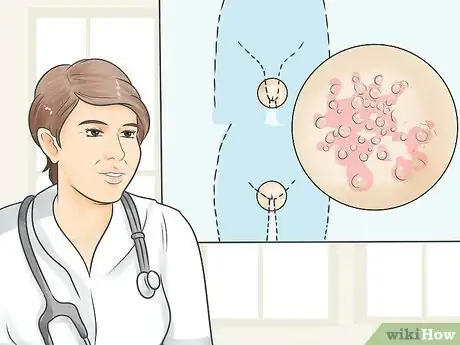
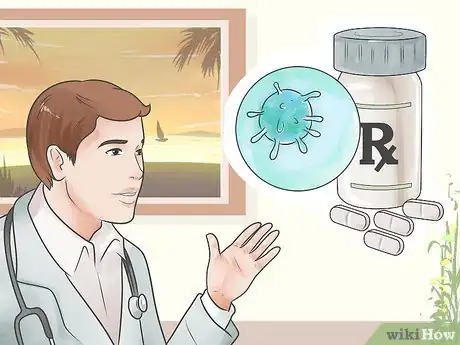









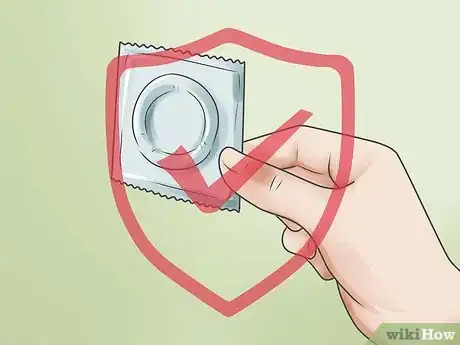

-Step-17.webp)





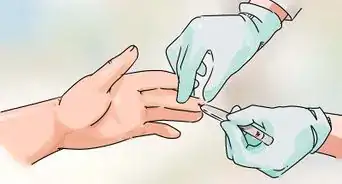













-Step-17.webp)

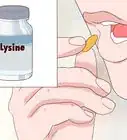



































Medical Disclaimer
The content of this article is not intended to be a substitute for professional medical advice, examination, diagnosis, or treatment. You should always contact your doctor or other qualified healthcare professional before starting, changing, or stopping any kind of health treatment.
Read More...